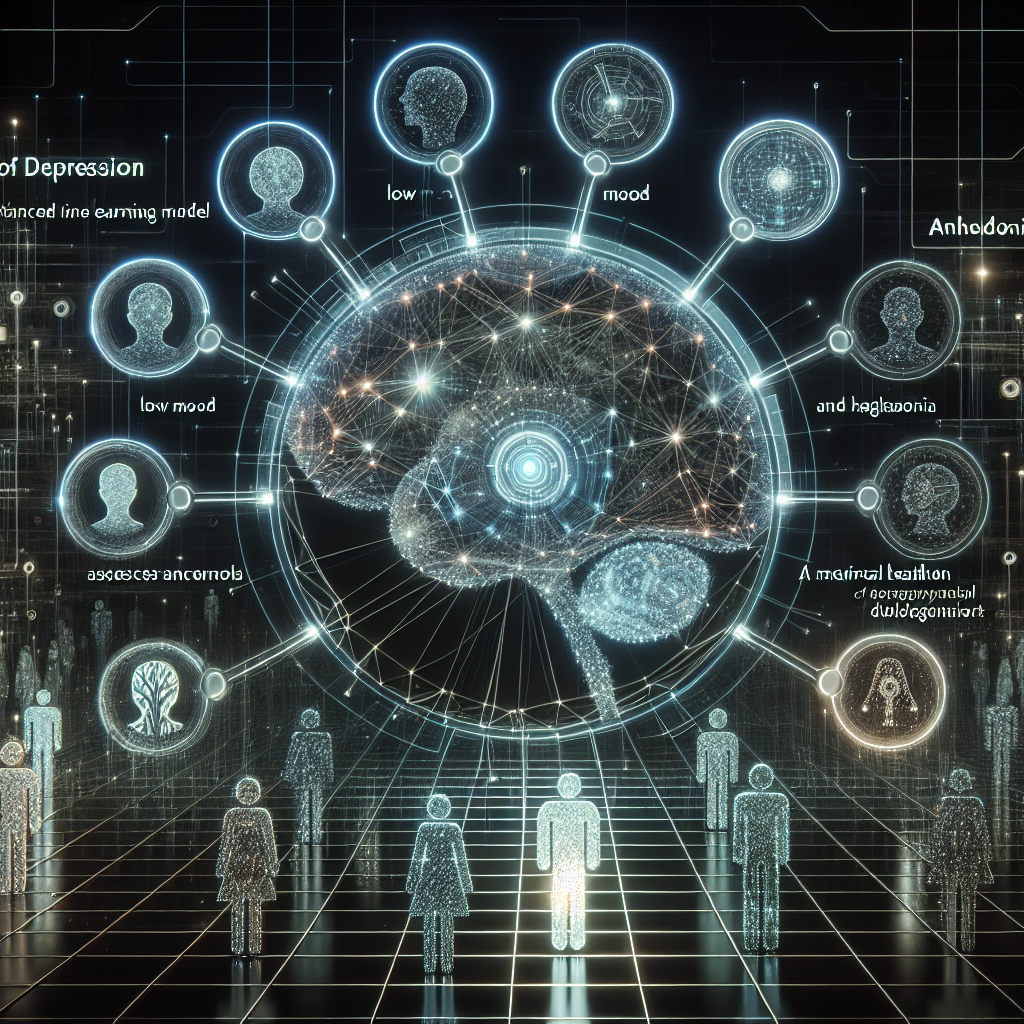Understanding GPT-4’s Insights on Depression: How AI Assesses Mental Health

Understanding GPT-4’s Insights on Depression: How AI Assesses Mental Health
In a world where mental health needs are intensifying and healthcare systems often fall short, AI promises a digital helping hand. Imagine GPT-4, the language model from OpenAI, not just whipping up poems or emails, but diving deep into mental health support. But how exactly does GPT-4 “think” about depression? Can it really help clinicians and patients alike? Researchers are peeling back the layers to decode this for us, and the findings might just surprise you.
Rising Stars of the Mental Health World: Large Language Models (LLMs)
It seems as though Large Language Models (LLMs) such as GPT-4 are starring in their own mental health support show. As more people turn to digital solutions for their emotional struggles, tech-savvy giants like OpenAI’s GPT-4 and Google’s Gemini are on the frontline. But how reliable are these bots when it comes to assessing mental disorders?
Recent surveys hint at their growing popularity: a digitized therapy session here, a chatbot confessional there, and boom—about 1 in 25 users are now seeking primary mental health support from these model anchors. Even clinicians are jumping on board, with 1 in 10 using this tech in their practice.
Why Airline Pilots and Mental Health Are Alike
What do pilots and mental health professionals have in common? Both need reliable tools to navigate—one in the skies and the other in the intricate terrain of the human mind. GPT-4, theoretically, is gearing up to be that reliable tool. But like any first-time co-pilot, trust is key, and understanding is vital.
To “get under the hood”, researchers have used something known as measurement theory. Think of it as a translator that deciphers how GPT-4 interprets symptoms of depression: what signs it flags, how it ranks them, and what it sometimes misses.
The Language of Depression: More Than a Dictionary
When evaluating depression, it’s not just about recognizing words like “sad” or “tired.” The research in question dives into how GPT-4 interprets and connects a spectrum of symptoms. By evaluating thousands of essays detailing personal battles with depression, GPT-4 graded these essays based on a well-known questionnaire called PHQ-9.
Did you know? GPT-4’s assessment of these essays boasts a high level of accuracy, often matching expert evaluations and even self-reported data. But here’s the crux: while it nailed most symptoms, it underestimated the complex web around suicidal thoughts—a cautionary tale for leaning too heavily on AI.
A Machine’s View of Depression
Here’s where it gets intriguing. The AI doesn’t necessarily ‘see’ depression as a straight line of sadness but as a web of interconnected symptoms. Imagine a spider navigating a web—it senses various threads simultaneously. GPT-4 identifies that big nodes like “depressed mood” or “anhedonia” (a loss of interest) pull at many threads. Though it sometimes misjudges the heft of psychomotor symptoms (like you feeling agitated or sluggish), it generally knocks it out of the park.
Yet, here’s a point of divergence: GPT-4 rated psychomotor issues as having a stronger connection with other symptoms than they typically do in real life. Conversely, suicidal thoughts seemed like a hidden thread that required explicit mentioning to be accurately woven into the web.
The Real World Implications
So, where do these insights take us? For one, they show promise in streamlining assessments and potentially fast-tracking diagnoses. Cost-effective and barrier-reducing, these models could disrupt traditional methods by offering timely interventions to those who don’t have easy access to mental health care.
However, it’s not just about deploying GPT-4 and calling it a day. Like a car with a turbo engine but no brakes, the excitement of this tech needs the grounding of clinical oversight and supplementation by human expertise. The AI might spot patterns and deduce symptom links but conducting a full, nuanced mental health picture is something it cannot do alone.
Key Takeaways
-
AI in Therapy: GPT-4 is increasingly being used for mental health support, but it’s essential to understand both its strengths and limitations.
-
Measuring Depression: GPT-4 can recognize and evaluate depression symptoms with a commendable degree of accuracy. Yet, it sometimes misses the mark on the nuances of symptoms like suicidal thoughts and psychomotor issues.
-
Analogies and Relationships: GPT-4 views depression as a web of interconnected symptoms, with some symptoms more heavily weighted than others.
-
Practical Use: There’s potential for GPT-4 to revolutionize mental health screening and assessment, but it should work hand in hand with human clinicians.
-
Continuous Learning: For more accurate diagnoses, GPT-4 should continue evolving, incorporating broader data and feedback to refine its understanding.
In summary, while GPT-4 isn’t ready to take over your therapy sessions entirely, it offers a glimpse into an AI-driven future where accessible mental health support is more commonplace. As we learn more about its interpretations, our job is to continue guiding this AI through the complexities of the human condition—because let’s face it, even future tech needs a little human wisdom.
If you are looking to improve your prompting skills and haven’t already, check out our free Advanced Prompt Engineering course.
This blog post is based on the research article “Explaining GPT-4’s Schema of Depression Using Machine Behavior Analysis” by Authors: Adithya V Ganesan, Vasudha Varadarajan, Yash Kumar Lal, Veerle C. Eijsbroek, Katarina Kjell, Oscar N. E. Kjell, Tanuja Dhanasekaran, Elizabeth C. Stade, Johannes C. Eichstaedt, Ryan L. Boyd, H. Andrew Schwartz, Lucie Flek. You can find the original article here.




